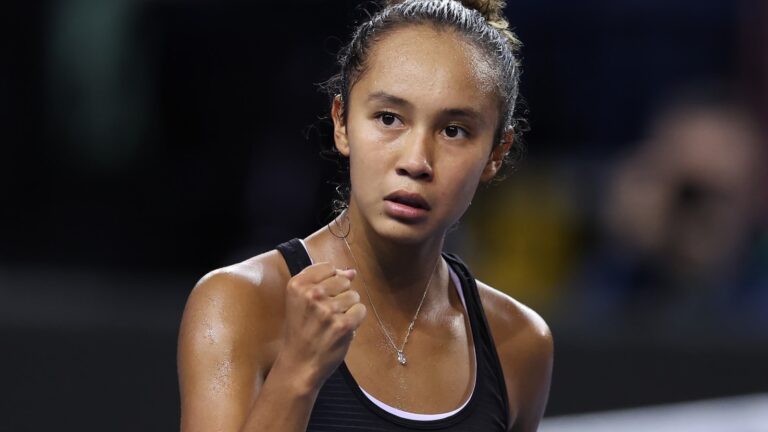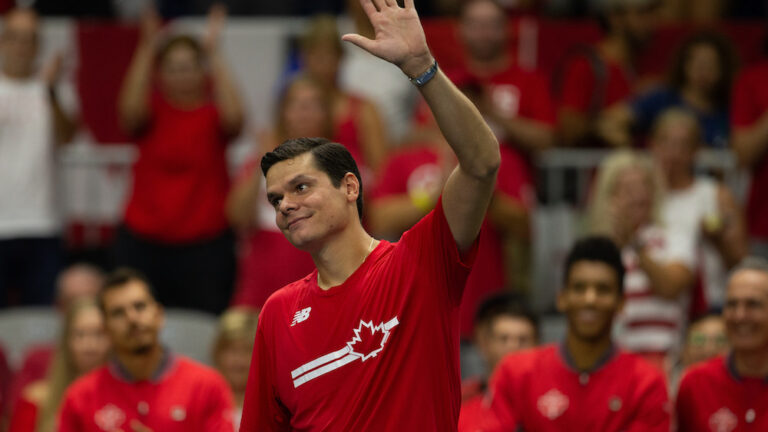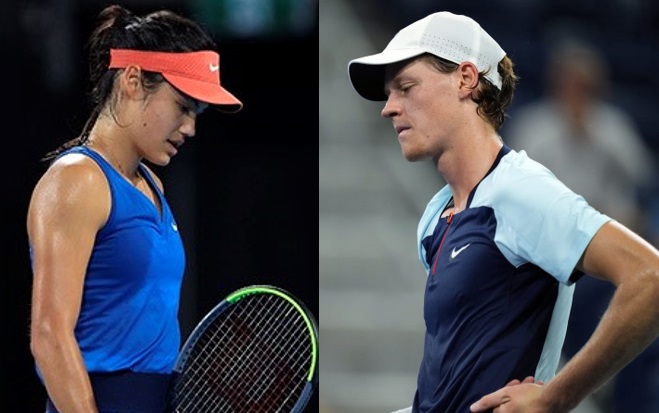
Mental toughness is a popular term that pops up a lot in sports as a rationale when an athlete hits a snag in their career.
It emphasizes how important mindset is when it comes to performance in any sport.
Mental toughness doesn’t stand alone. It’s a simple way to encompass assets like confidence, effective strategies to handle pressure and stress and other elements sports psychologists are well versed in.
In tennis—an individual sport if there ever was one—mental toughness is essential. You see it every day when players fall to pieces after coming so close to a win or plummet in the rankings for no (apparent) reason.
I wanted to find out more, and there’s no better source than world-renowned sports psychologist Dana Sinclair. She is the founder and partner of Human Performance International, a Toronto-based management consulting firm that supports international athletes in all disciplines.

MOST DISAPPOINTING RANKING OF 2022
At the end of last season, the French sports daily L’Équipe released a ranking that most tennis fans found debatable, if not unjustified and unfair.
Read also: Huber at your service
At the top of the list of the most disappointing players of 2022 was Jannik Sinner, followed by Gaël Monfils and Ugo Humbert. Emma Raducanu was no.4.
A deafening outcry ensued, led by experts like Polish performance psychologist Daria Abramowicz, who was part of the team that helped Iga Swiatek dominate women’s tennis, and six-time Grand Slam doubles champion and doubles No.1, TV commentator and coach Rennae Stubbs.
There’s no denying that the often-injured Emma Raducanu went into a tailspin after her surprising US Open triumph in September 2021. Her 2022 record is 16–18.
But readers thought it was shameful to put Sinner in the top spot.
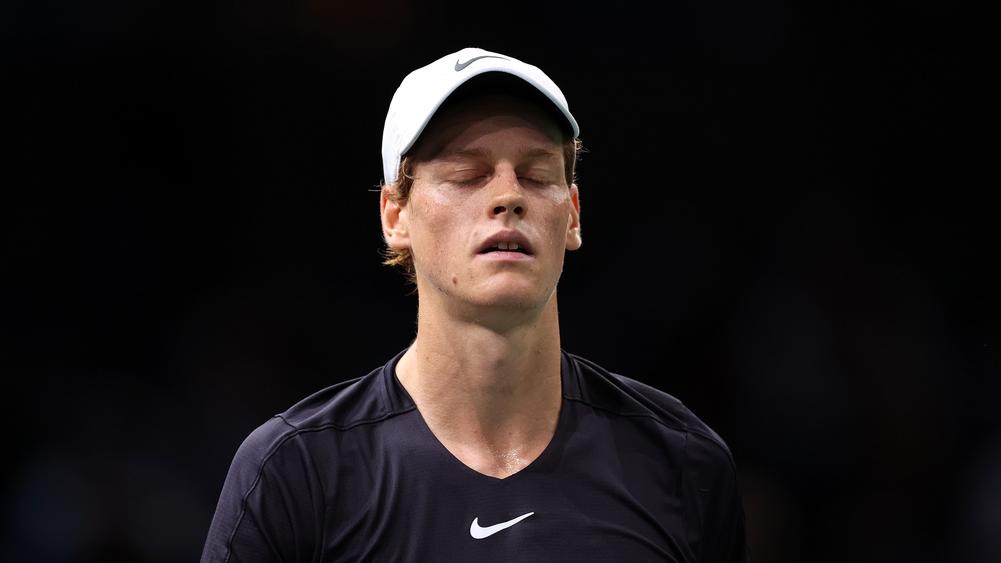
After all, wasn’t he the first player born in the 21st century to reach the quarters of all four Slams? And didn’t he compete in the quarters of three of the four majors last year?
And isn’t his 2022 record 41–15 and 15–4 at the Slams?
Read also: Sinner reaches Miami final
Does that spell disappointment?
CONFIDENCE, PERFORMANCE, STRESS
Back to Dana Sinclair. As soon as I asked my first question, I could sense a tinge of sarcasm in her voice.
“Well, I think the media will do what they have to do to make things interesting, but I always end up focusing on the issue that these people, who are extremely talented, weren’t getting the result that was expected of them. I think that people don’t understand confidence and performance under pressure very clearly,”she said with a smile.
Read also: Pressure not a problem for Fernandez at Billie Jean King Cup
She also made a very important clarification: “People have to learn how to manage their mindset. Because talent doesn’t ensure success. It’s the mindset.”
Elite athletes possess amazing skills, but the goal is to get the best out of yourself and get it more often than your average competitor.
I asked Dana Sinclair if she agreed with the common coaching cliché of never getting too high or too low.
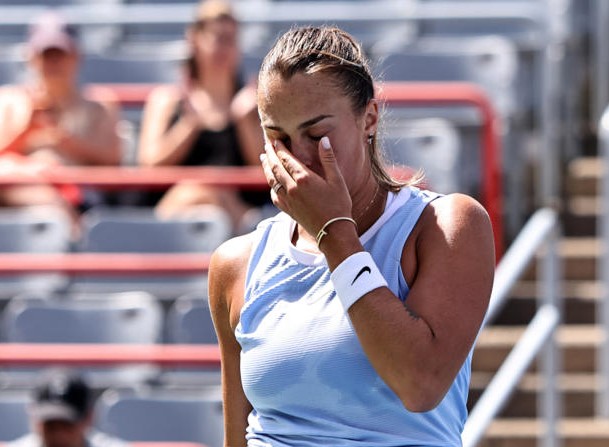
“I don’t mind getting too high or too low as long as you can quickly rebalance, refocus in the middle of a competition, in the moment,” she explains. “And that’s a tough skill if you weren’t necessarily taught how to do it as the pressure mounts.”
She then makes an assertion that’s as surprising as it is interesting: confidence isn’t the only variable.
Read also: Andreescu lends her support to Team Canada at Billie Jean King Cup
“I feel that confidence is overrated. You might want it, but you don’t need it. It’s about your skills. They don’t go away from day to day or set to set. They’re there, and it’s up to you to access them in the moment. And that’s your mental approach, learning how to do that.”

On the topic of Emma Raducanu, Dana Sinclair was careful not to comment on someone she’s never met. “These skilled players get derailed by a whole bunch of distractions, injuries being one. It could also be having a big focus on results. People worry about expectations; they worry about making mistakes. You need to learn how to refocus in the moment. That’s what I tell my clients: ‘I don’t care how you feel, I care about what you do.’ And getting people to that mind set is very important.”
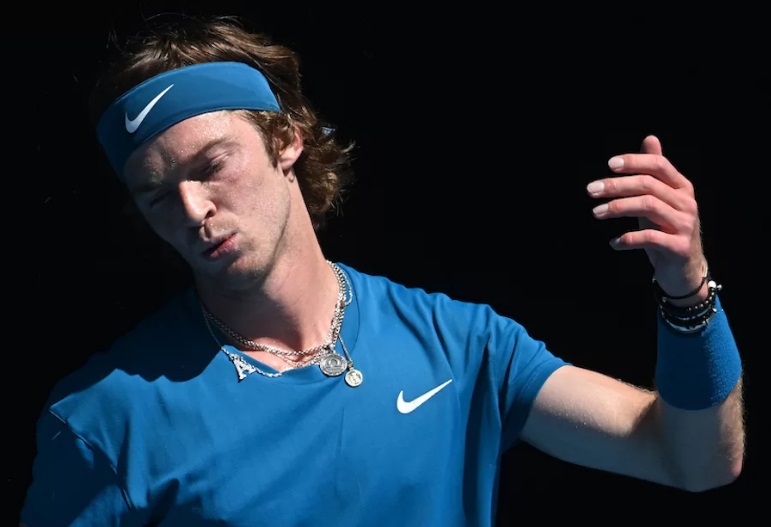
And all that on top of how overwhelming fame and fortune can be.
“We don’t necessarily show people how to deal with it. With the increase in pressure, it makes you think about different things. If you’re thinking about other distractions, you’re no longer thinking about executing correctly, and your game changes because you’re no longer focused on those important things that you have to do on court to make it happen. And people don’t recognize it when they’re in the middle of it,” she says.
Read also: Rublev reigns in Monte-Carlo
Some say sport is 80% mental and 20% physical. “Ah! Wayne Gretzky once told me it’s 90–10!” she replied with a smile.
MULTISPORT
If it’s through tennis that you’ve been introduced to this renowned psychologist, you should know that Dana Sinclair counsels athletes in all sports, from the Washington Nationals’ roster to former Canadian IndyCar Series driver Dalton Kellett and the Saint John Sea Dogs on their way to winning the 2022 Memorial Cup.

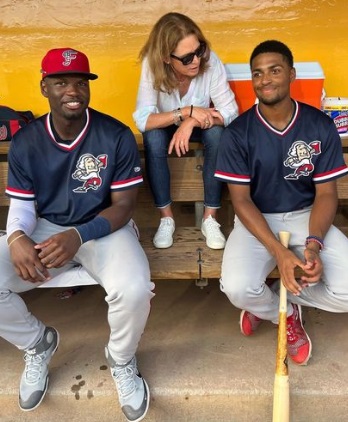


Last December, Dana Sinclair spent some time in Florida with Tennis Canada’s most promising players.
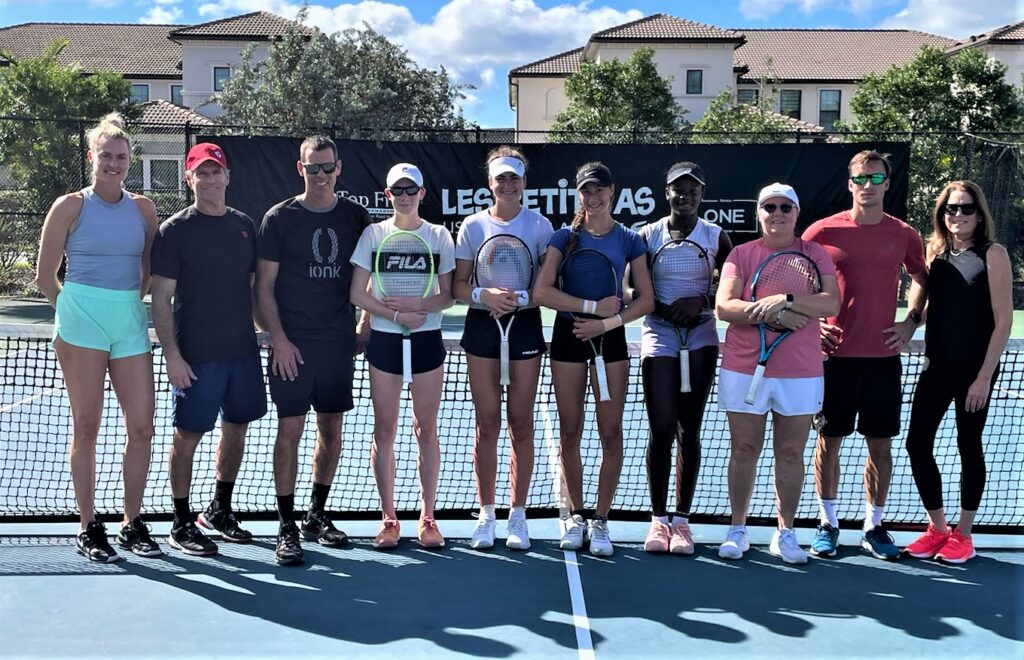
Just a few decades ago, coaching teams rarely included a performance psychologist. Today, every athlete and every professional team who wants to be no. 1 puts their faith in the experts.
Read also: Team Canada inspires young athletes ahead of Billie Jean King Cup
Is it 90–10? 80–20? It doesn’t really matter.
When it comes to competition, it’s about winning the mental game.
=======================================================
email : privard@tenniscanada.com
Twitter : @paul6rivard
Follow all our Canadians in action here.

